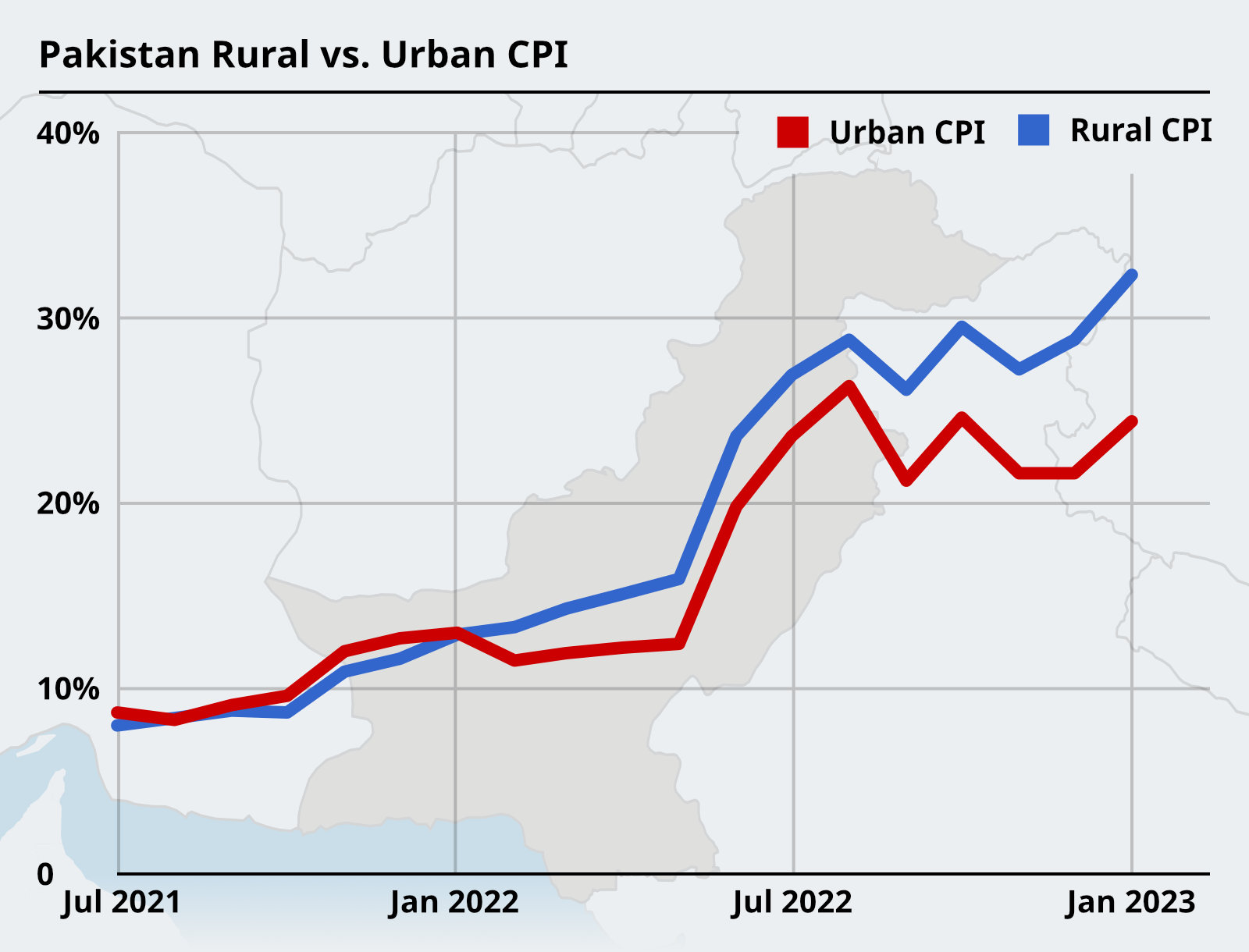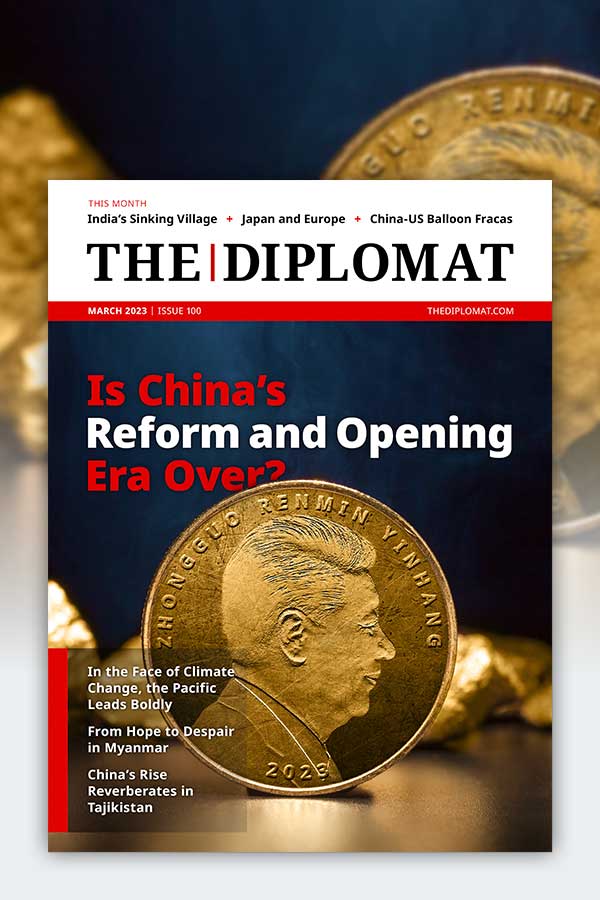| Welcome to the latest issue of Diplomat Brief. This week our top story explores the links between organized crime and China’s transnational repression in Italy’s Tuscany region. We also have an interview with Wall Street Journal reporters Josh Chin and Liza Lin on China’s surveillance at home and abroad. |
| Story of the week |  | Economy China’s Transnational Repression and Modern Slavery in ItalyWhat Happened: For the past 20 years, successive Italian governments have high hopes for the economic side of relations with China. Most notably, Italy became the first G-7 country to join China’s Belt and Road Initiative in 2019, much to the chagrin of the United States. The expected economic boom has not panned out, but Italy has seen a surge in Chinese textile factories – fast fashion companies hoping to boost their brand with the coveted “Made in Italy” label. However, some of these factories have brought over abhorrent labor practices, alongside money laundering, tax evasion, and other criminal activities. Our Focus: Journalists Leonardo Delfanti and Hugh Bohane visited “Santo Beijing” – as the Chinatown of Prato, Italy, is known – to look into allegations of labor abuses and criminal practices. Prato, a manufacturing hub for Italy’s textile industry, is home to at least 30,000 overseas Chinese – and, police estimate, up to 50,000 more undocumented workers. That undocumented status makes the workers vulnerable to labor abuses. One such worker, a Pakistani national, told The Diplomat that he works 12-hour days, seven days a week, in a Chinese-run factory: “I have no dignity at all.” Police sources also shared suspicions of human trafficking in the industry. What Comes Next: Prato is a case study in the problems with the fast fashion industry. The city hosts a complicated web of legitimate businesses and illegitimate or outright illegal activities. Factories may operate legally or make and sell goods under the table, without paying taxes. Others are engaged in money laundering, police say. The financial crimes feed into labor abuses by creating a sense of impunity: “If rules were to be respected, the payment of allowances, the maturation of compulsory rest periods… Things incompatible with the production methods of fast fashion would be addressed,” one police officer told The Diplomat. Read this story |
| Behind the News | INTERVIEW Josh Chin and Liza LinJosh Chin and Liza Lin, authors of “Surveillance State: Inside China’s Quest to Launch a New Era of Social Control,” on what makes China’s surveillance efforts unique: “Chinese authorities are subjecting both foreign governments and their own people to military-grade surveillance. You see this most clearly in the northwestern region of Xinjiang.” Read the interview |
| This Week in Asia | Northeast Asia China’s “Two Sessions” BeginThe “two sessions” – annual meetings of China’s political advisory body and national legislature – kick off at the end of the week, with the CPPCC opening on March 4 and the National People’s Congress the following day. This year’s NPC session will finish off the leadership transition that began with the 20th Party Congress last fall, confirming not only a new premier and vice president but new members of the State Council, China’s cabinet (including a new defense minister). Find out more | South Asia India Hosts G-20 Foreign Ministers MeetingIndia’s first big test as this year’s G-20 chair is happening on March 1-2, when foreign ministers convene in New Delhi. The meeting will bring China’s Qin Gang, America’s Antony Blinken, and Russia’s Sergei Lavrov into the same room – always a recipe for extreme tensions. Further complicating matters, India’s own ties with China remain strained, so Qin’s reception in New Delhi is well worth watching. Find out more | Southeast Asia Vietnam to Appoint New PresidentVietnam’s National Assembly is this week expected to confirm the appointment of a new president after the unprecedented mid-term resignation of Nguyen Xuan Phuc last month. The rumored lucky candidate is Vo Van Thuong, who at 52 years of age is the youngest member of the Communist Party of Vietnam (CPV)’s Politburo, the country’s apex decision making body. Reported to be close to the powerful CPV chief Nguyen Phu Trong, Thuong also figures as a potential future leader of the party. Find out more | Central Asia U.S. Secretary of State in Central AsiaSecretary of State Antony Blinken paid his first visit to Central Asia this week, stopping in Kazakhstan and Uzbekistan on Tuesday and Wednesday. Blinken’s visit highlighted the U.S. effort to position itself as a defender of Central Asia’s “territorial integrity, independence, and sovereignty” against the backdrop of Russia’s invasion of Ukraine, but the outreach to doesn’t sit neatly with the Biden administration’s focus on global democracy. Find out more |
| Visualizing APAC |  | Pakistan has been hard-hit by inflation over the past year, with the price increases exacerbating existing inequalities between urban and rural regions. See the full picture |
| Word of the Week | Society ifogaThe formal Samoan apology and forgiveness ritual, which has been used for diplomatic purposes as well. Find out more |
| Webinar Alert | The Diplomat Asks Vietnam’s Political Shake-upThe past several months have seen some remarkable developments in Vietnam’s domestic politics. In mid-January, Nguyen Xuan Phuc became the first state president in the country’s history to resign in the middle of his term, following two deputy prime ministers – and dozens of lower level government officials and party apparatchiks – out the door. The resignations have been linked to the Communist Party of Vietnam’s wide-ranging anti-corruption campaign, but is there more to this purge of the upper echelons of the Vietnamese party state? And how might these changes in Vietnamese politics affect the country’s foreign policy and attractiveness as a destination for foreign investment? Join us for a webinar on March 6, 2023, at 7 pm U.S. Eastern. Featuring Dr. Zachary Abuza, a Professor at the National War College, in Washington, D.C. Dr. Hai Hong Nguyen, an honorary research fellow at the Centre for Policy Futures, University of Queensland Linh Nguyen, an Associate Director in the Southeast Asia Business Intelligence practice, at Control Risks based in Singapore. Sign up for the webinar |
|  |



